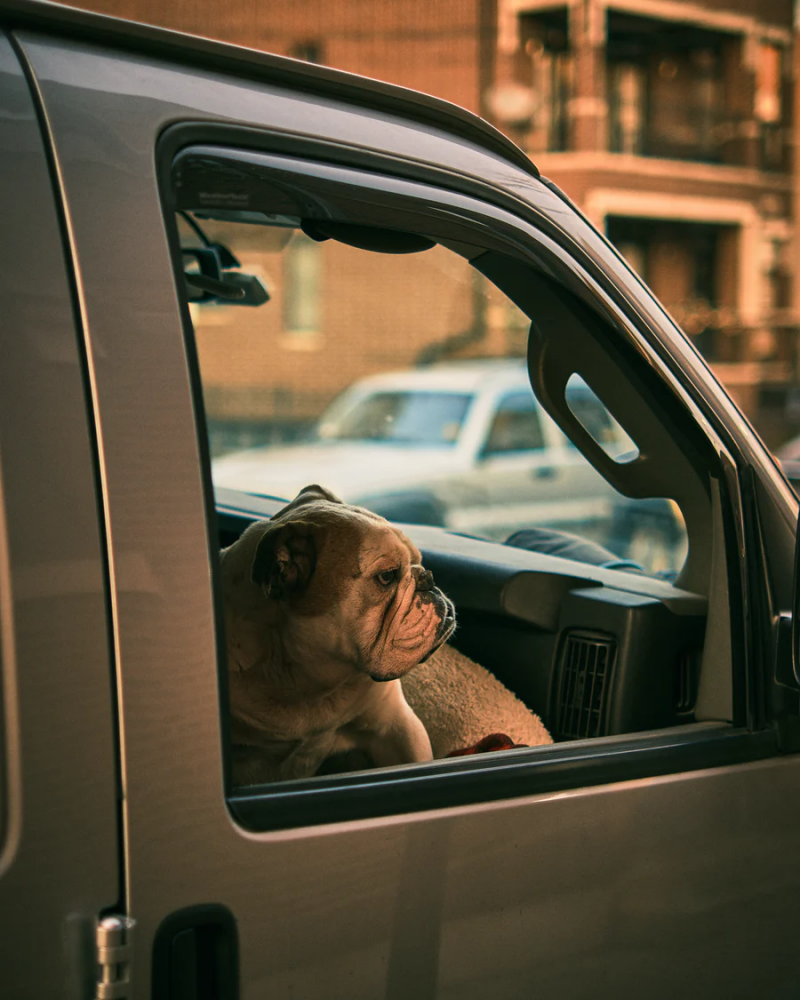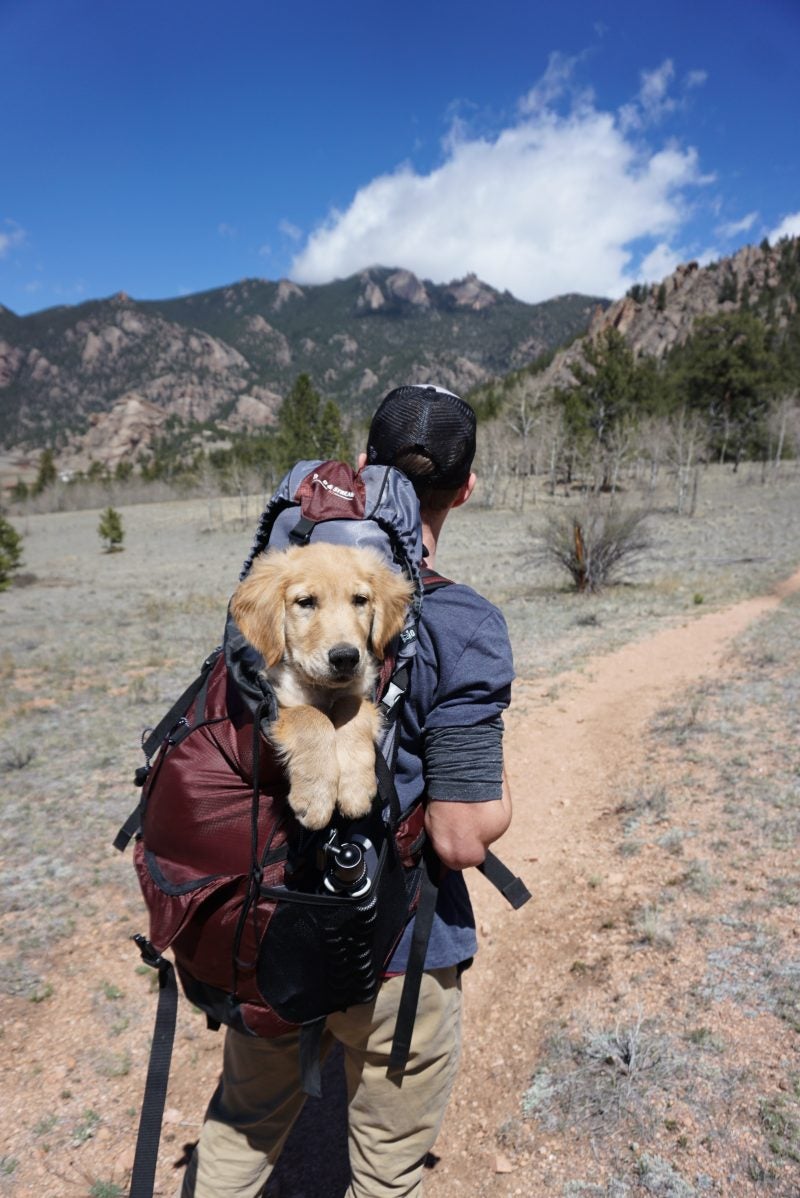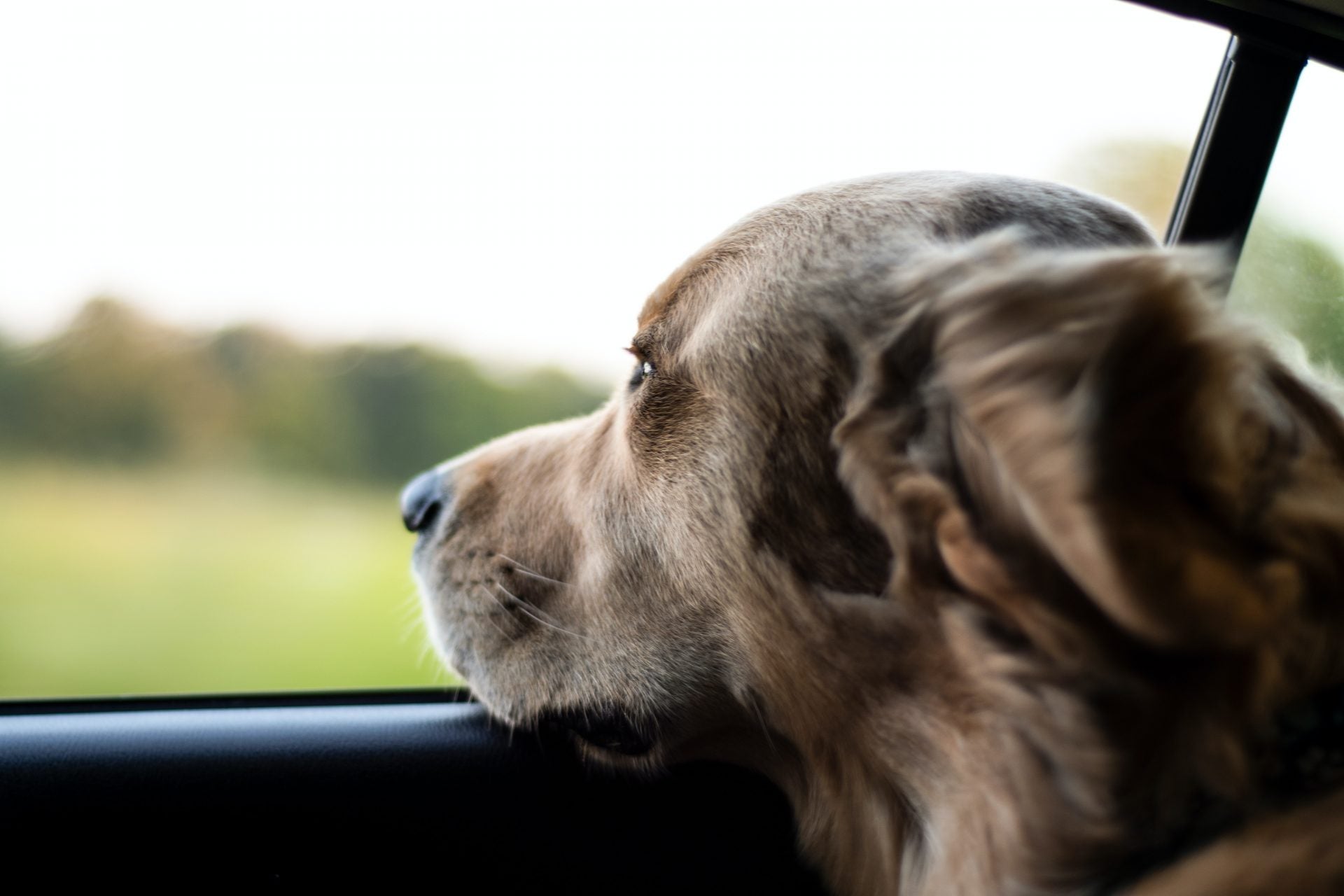Pets make excellent traveling companions, and it’s always more fun to take your four-legged friend with you to experience a new location.
Whether you’re away on vacation or just visiting family in another state, traveling with your pet is totally doable, but requires a little preparation work.
There’s many things to think about to make sure they’re safe and happy, so check out our top tips below to make traveling with your pet easy.

Register and Insure your Pet
You should always make sure you have appropriate registration and insurance for your pet, particularly when traveling.
Double-check that you’ve taken care of the following essentials before you leave:
•Your pet meets the travel criteria for the country or state you’re visiting.
•Your pet’s vaccinations are up-to-date, and you have the paperwork to prove it if needed.
•You have checked any airline or travel provider requirements ahead of time.
If you have an emotional support animal (ESA), they are often afforded more rights than standard pets. Check the regulations of where you are traveling to. Emotional support animal registration Texas laws are different than California’s. You’ll want to spend some time researching what your ESA can and cannot do while traveling.

Invest in a Quality Pet Carrier
When in transit, it’s important for your pet to be safe and comfortable. That’s why you should make investing in a high-quality pet carrier a top priority. This will ensure your animal is stress-free, comfortable, and safe while traveling.
Depending on the size of your pet, you may want to look at options with wheels to make it easier to transport your pet in airports. If traveling by car, look for crates designed specifically for use in a car or van.
Plan Meals Around Travel
No one wants to travel on an empty stomach, right? But, when it comes to pets, sometimes skipping a meal on travel days is the best thing for them. When stressed or struggling with motion sickness, animals often experience vomiting and diarrhea. You can keep this risk to a minimum by keeping their tummy empty prior to travel.
You should also make sure you have an appropriate number of snacks and enough of your pet’s normal food to last your entire trip. This means that they will be familiar with their food and more likely to eat it, even if unsettled by a new location.
But Don’t Miss Out on the Water
While too much food might make travel with your pet too difficult, be sure to provide them with plenty of water throughout. Without access to their normal water bowl, animals can become dehydrated quickly – and even more so when they’re stressed.
Consider purchasing a travel bowl that can be attached to the inside of their crate so they can access water whenever they feel they need it. If that’s not an option, make sure you stop regularly and offer them the opportunity to drink.
Make it Easier to Locate your Pet if Lost
Should you find yourself in the unfortunate situation of losing your pet while traveling or in a new destination, you’ll want it to be as easy as possible to locate and retrieve them quickly.
Get your pet microchipped so that they can be easily tracked. This small tracking chip is implanted under the skin and is a procedure offered by most veterinary surgeries.
If you don’t want to microchip your pet, at least make sure you have up-to-date contact details on their tag or collar, as well as their travel crate.
Bottom Line

With a little prep work, going on a trip with your pet is a breeze. Use this guide to make sure you’ve got everything in order before you go.
If you’re at all worried about taking your pet, know that it’s sometimes in your best interest to leave them at home. Weigh out the pros and cons, and only take your pet traveling if you’re 100% sure it’s something you want to do.

















